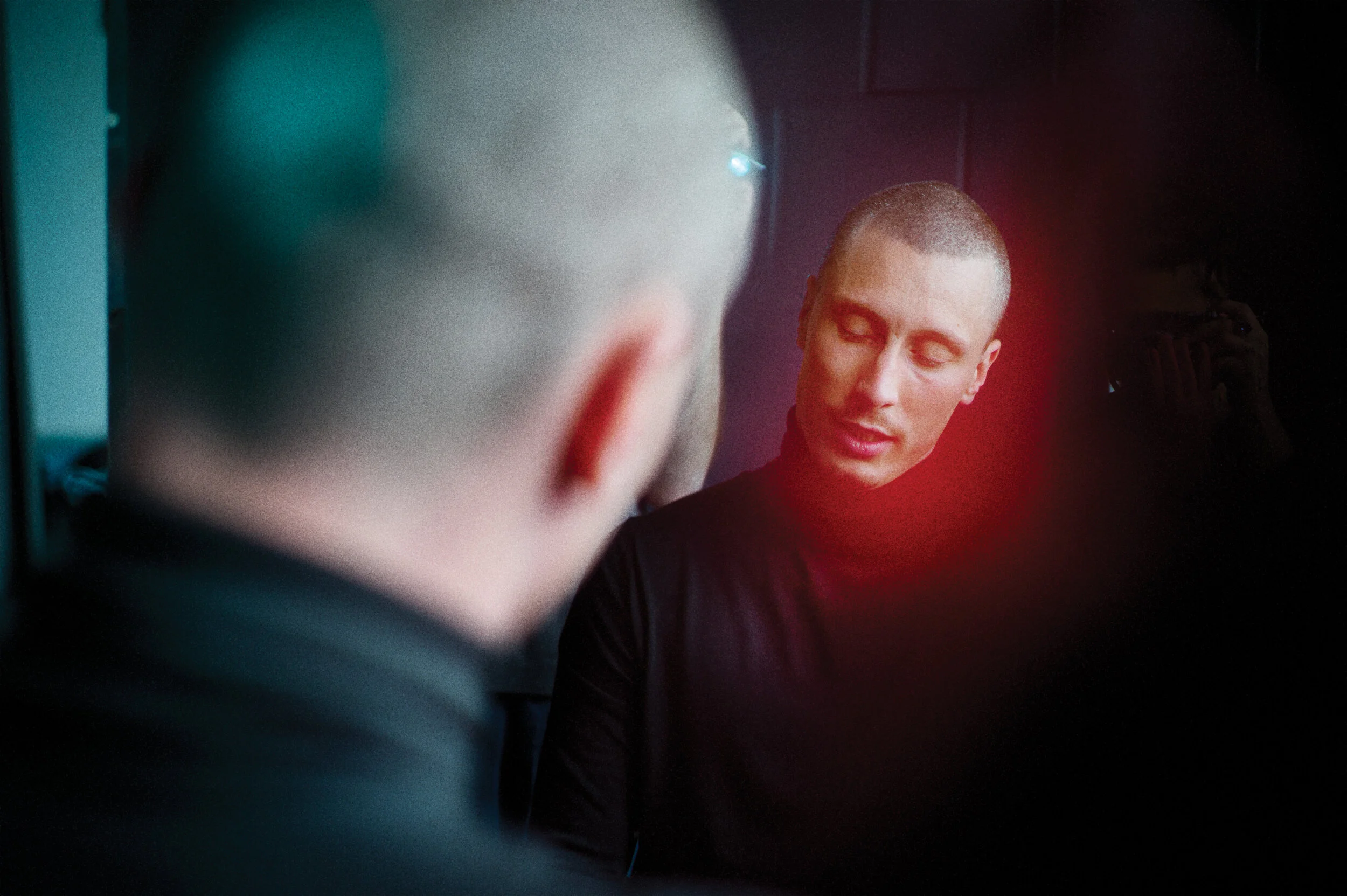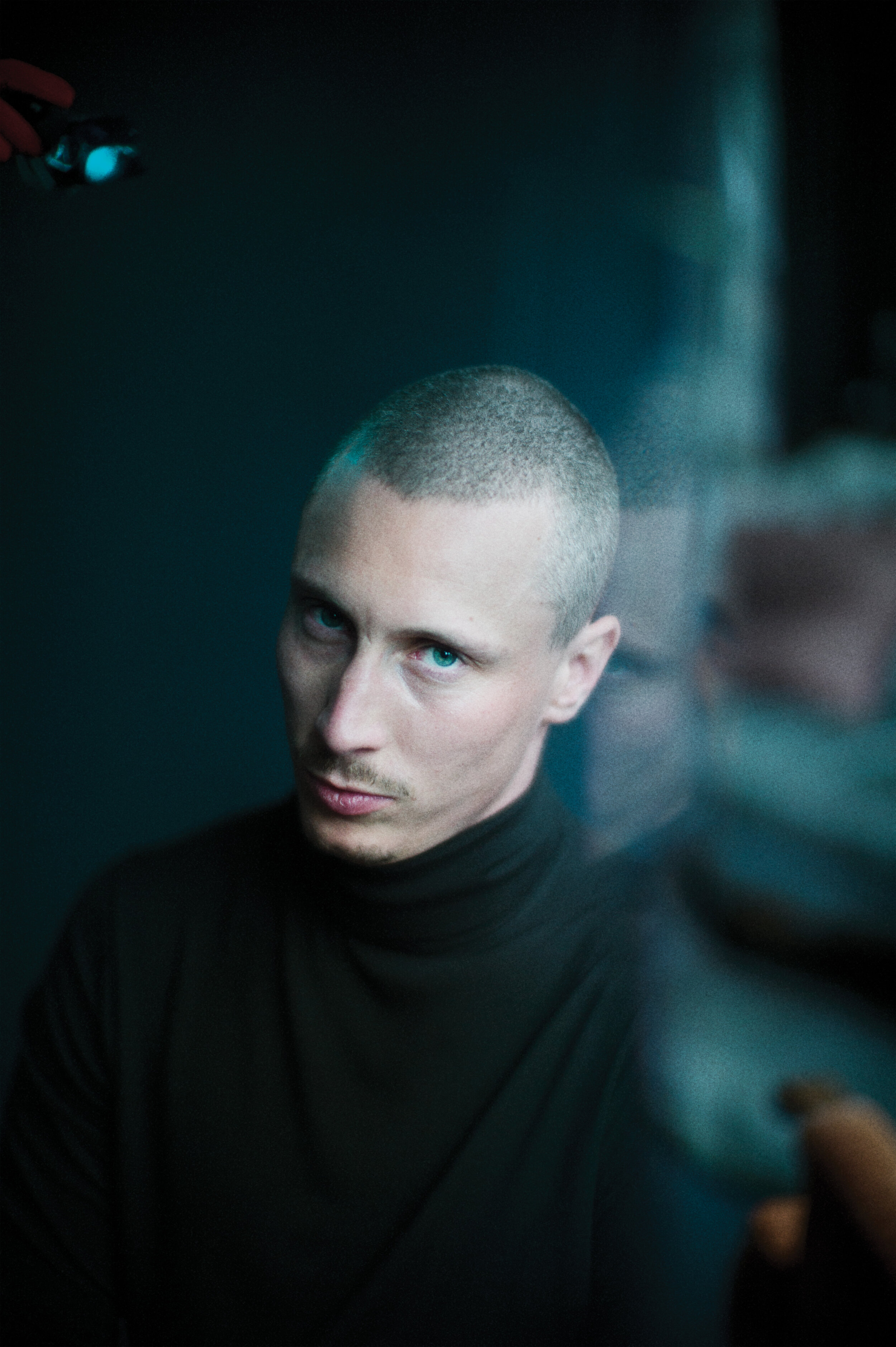Theo Anthony | The Eye in the Sky Got Cataracts
by Joshen Mantai
HERMÈS coat, top, and pants.
Human perspective knows limitations. Despite omnipresent blind spots, we are nonetheless instilled to believe that cameras are objective, and surveillance is critical for progress, perhaps even longevity. This has sparked a debate about the boundaries between partiality and objectivity, especially in relation to a technological eclipse.
In his second feature-length documentary, All Light, Everywhere, director Theo Anthony investigates bias behind the lenses of surveillance via a history of cameras, weapons, policing, and justice. The gripping film won the U.S. Documentary Special Jury Award for Nonfiction Experimentation at the Sundance Film Festival earlier this year. Anthony’s inspiration for the inquisitive project stemmed from the killing of Freddie Gray in the presence of the Baltimore Police Department in 2015, captured on multiple surveillance cameras. From here, Anthony shares that he was intrigued by “how the camera shapes behavior and channels certain power dynamics.”
HERMÈS top.
Anthony meticulously pieced together chapters of the documentary over the course of four to five years, treating every section as its own short film, shot in bursts of days after months of preparation and research. The film contains footage of the Baltimore police being trained on how to use body cameras, and dually, the examination of the power player behind the production of these cameras—Axon. While Axon spokespeople parade its valuing of “transparency,” and boast of its body cameras emulating the human eye, the viewer is made well aware of the limitations of the photographic frame from the officer’s perspective. “You don’t get very far reading about surveillance or its history,” Anthony shares, “without coming across the idea that private companies are taking the place of democratic input.”
Anthony breaks the fourth wall in the documentary in a pursuit to redefine power dynamics between the filmmaker and content. “We knew very early on that the film was about a way in which power works by erasing itself from the frame,” he says. “To not acknowledge ourselves in the film would be hypocritical to the very thing that we were talking about.”
The director postulates that the discourse surrounding the future of body cameras—and the heaps of praise given to technological innovation—should be reconsidered. “There’s a much more basic question of how policing is functioning in America today,” he reflects, “and if we want to systematically change the way we think of public safety. So often, body cameras get so much of our energy, and it’s repressing the more essential question we need to be asking.” Anthony’s intensive exploration demonstrates that these tools—while integral in the increasingly pressing criminal justice process and conversation—are not neutral, despite their “idyllic” Silicon Valley innovation. In so doing, he posits the question: Does mechanization really make us smarter, or more easily deceived?
HERMÈS top.
Photographer: Ioulex
Stylist: Noah Diaz
Groomer: Jessica Ortiz at Kalpana using Dior Backstage Face & Body Foundation
Written by: Joshen Mantai



